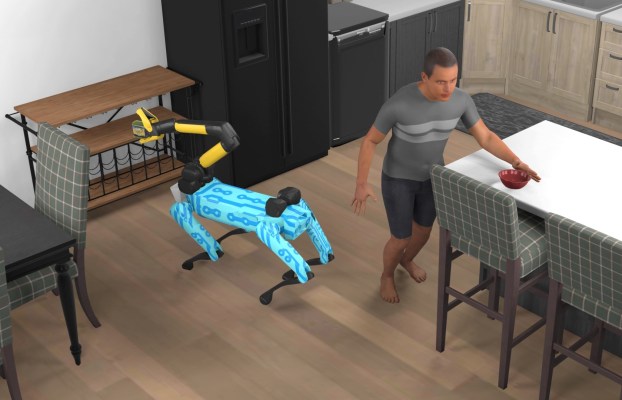For the next few weeks, TechCrunch’s robotics newsletter Actuator will be running Q&As with some of the top minds in robotics. Subscribe here for future updates.
Part 1: CMU’s Matthew Johnson-Roberson
Part 2: Toyota Research Institute’s Max Bajracharya and Russ Tedrake
This time it’s Dhruv Batra, research director, FAIR (The Fundamental AI Research) at Meta. The Facebook parent describes FAIR thusly:
The Fundamental AI Research (FAIR) team at Meta seeks to further our fundamental understanding in both new and existing domains, covering the full spectrum of topics related to AI, with the mission of advancing the state-of-the-art of AI through open research for the benefit of all.
Batra is also an associate professor at the Georgia Institute of Technology.
What role(s) will generative AI play in the future of robotics?
I see generative AI playing two distinct roles in embodied AI and robotics research:
- Data/experience generators
Generating 2D images, video, 3D scenes, or 4D (3D + time) simulated experiences (particularly action/language conditioned experiences) for training robots because real-world experience is so scarce in robotics. Basically, think of these as “learned simulators.” And I believe robotics research simply cannot scale without training and testing in simulation. - Architectures for self-supervised learning
Generating sensory observations that an agent will observe in the future, to be compared against actual observations, and used as an annotation-free signal for learning. See Yann’s paper on AMI for more details.
What are your thoughts on the humanoid form factor?
I’m bullish on it. Fundamentally, human environments are designed for the humanoid form factor. If we really want general-purpose robots operating in environments designed for humans, the form factor will have to be at least somewhat humanoid (the robot will likely have more sensors than humans and may have more appendages, as well).
How far out are true general-purpose robots?
Thirty years. So effectively outside the window where any meaningful forecasting is possible. In fact, I believe we should be deeply skeptical and suspicious of people making “AGI is around the corner” claims.
Will home robots (beyond vacuums) take off in the next decade?
No, I don’t believe the core technology is ready.
What important robotics story/trend isn’t getting enough coverage?
That we can now test navigation robots in real homes and things actually work! Notice, unlike self-driving cars, these in-home navigation robots do not have the luxury of building precise maps over millions of miles of driving. We take a robot to a new house and ask it to find objects.
